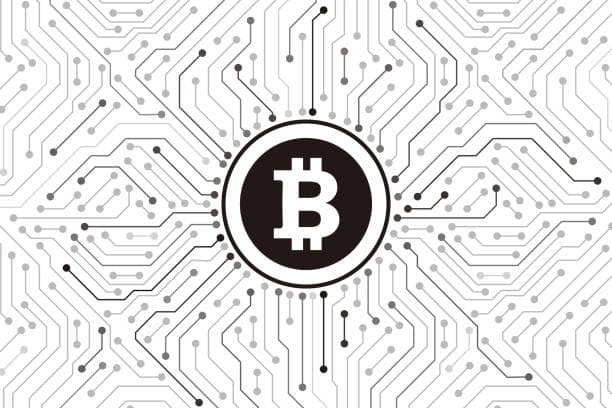Bitcoin Wallet Encryption Options: Safeguarding Security and Privacy
With the rise of Bitcoin and other cryptocurrencies, more and more people are trading and storing digital currency. This has brought with it heightened concerns about security and privacy. Encryption options for Bitcoin wallets are not only crucial for securing funds, but also for users' privacy. In this article, we will discuss how to choose the right encryption options to enhance the security and privacy of your Bitcoin wallet, and introduce some practical encryption techniques and setup methods to help you manage your assets with greater peace of mind in the world of digital currency.

Why is the security of Bitcoin wallets so important?
As a tool for storing and managing Bitcoin, the security of Bitcoin wallets is one of the most important concerns of every user. Due to the decentralized nature of Bitcoin, there is no organization that can help recover losses in the event of a hacking attack or loss of passwords. Therefore, encryption options are the first line of defense to protect your assets from attacks and theft. Choosing the right security measures not only prevents the loss of funds, but also protects the privacy of your transactions and prevents them from being traced or stolen by the wrong people.
**Private key encryption: the foundation of wallet security**
The security of Bitcoin relies on private key encryption, which is a secret code used to sign transactions. Only the owner of the private key can control the assets in a Bitcoin wallet, so protecting the private key is critical. Private keys should be stored in a secure location, such as a hardware wallet or encrypted storage device, and not on the Internet or cloud services. Setting a strong password and enabling two-step authentication can also further enhance wallet security.
**Selecting the right type of crypto wallet**
There are a variety of Bitcoin wallets available on the market today, including hot wallets, cold wallets and hardware wallets. Hot wallets are convenient but susceptible to hacking, so they are suitable for small amounts of daily transactions. Cold wallets are suitable for long-term storage of large amounts of Bitcoin because they are not connected to a network, providing a higher level of security. Hard wallets are currently one of the most popular choices for storing private keys in specialized hardware devices, effectively avoiding the risk of online attacks. Choosing the right type of wallet will maximize the protection of your Bitcoin assets.
**Necessity of stronger passwords and double authentication**
In addition to choosing the right type of wallet, setting up a strong password and double authentication (2FA) is an important measure for securing your Bitcoin wallet. Strong passwords should include upper and lower case letters, numbers and special characters, and avoid easy-to-guess combinations such as birthdays or names. Double authentication adds an extra layer of protection to the wallet, so that even if the password is cracked, no transaction can take place without a second layer of authentication. It is recommended to use a reliable 2FA tool such as Google Authenticator or a hardware key to enhance security.
**Encrypted Transactions: Protecting the privacy of transactions**
Although Bitcoin transactions are anonymous, the transaction records are still public on the blockchain and anyone can view the details of the transactions. As a result, protecting the privacy of transactions has become a growing concern for more and more users. Using a mixed-currency service such as CoinJoin can help you hide the origin and destination of your transactions, enhancing the privacy of your transactions. Some premium wallets offer privacy features (such as Stealth Addresses and Confidential Transactions) that further protect sensitive information about your transactions, ensuring that your financial activities are protected from prying eyes.

**Backup and recovery: preventing data loss**
In addition to encryption and safeguards, backups are an important part of securing your Bitcoin wallet. In the event that your device is damaged or lost, a wallet without a backup will make it impossible to recover your funds. Most wallets offer a backup option, which usually generates a Recovery Seed, a string of 12 or 24 words that can be used to recover your wallet on another device. Keep the Recovery Seed safe, avoid writing it down where it can be easily found by others, and store it in a secure physical location.
**Other Ways to Enhance the Privacy of Bitcoin Wallets**
In addition to using the Mixed Coin service and privacy features, there are some other ways to enhance the privacy of your Bitcoin wallet. Avoid making too many transactions on the same wallet address as this will minimize the exposure of the transaction history. Changing wallet addresses on a regular basis is also a good way to protect your privacy. Finally, for some users with high privacy needs, they can choose to support privacy coins (e.g. Monero, Zcash) for transactions, these cryptocurrencies have stronger privacy protection features.
Frequently Asked Questions Q&A
Q1: How to choose a safe Bitcoin wallet?
A1: When choosing a Bitcoin wallet, you should consider the security of the wallet, whether it supports private key control, and whether it supports two-step authentication and backup functions. Hard wallets are considered the safest choice.
Q2: How can I make sure my Bitcoin wallet will not be hacked?
A2: In addition to choosing a secure wallet type, it is recommended to set a strong password, enable double authentication, and keep your private key in an offline location, such as a hard wallet.
Q3: What should I do if I lose my private key to my Bitcoin wallet?
A3: If you have a backup Recovery Seed, you can use it to recover your wallet on other devices. If you don't have a backup, you can't recover your private key or funds, so backup is the key.
These measures can help you enhance the security and privacy of your Bitcoin wallet, giving you greater peace of mind in the world of digital currency.














